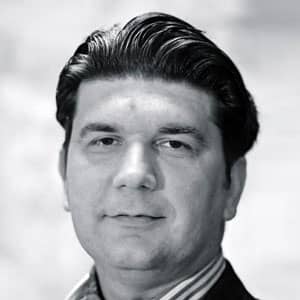
- Sorin Petrof, PhD
- June 19, 2023
Facebook
Twitter
WhatsApp
Telegram
Email
A Technological Church?
Ultimately, The Church Should Strike A Delicate Balance Between Caution And Engagement. It Should Encourage A Critical Examination Of Technological Advancements While Also Seeking Opportunities To Contribute To The Dialogue And Provide A Moral Compass In The Face Of Rapid Technological Change

The term “technique,” coined by the French historian, sociologist, and lay theologian Jacques Ellul in 1954, seems to have become a fulfilled prophecy. In his book La Technique, Ellul argued that technology has taken on a life of its own, surpassing human control and posing a threat to human liberty. His perspective, rooted not only in sociology but also in his devout Christian beliefs, portrayed technology as humanity’s perpetual pursuit of a secular version of the Garden of Eden.
Traditionally, technology was perceived as a by-product of the fallen state (1), lacking any significance beyond it. It completely severed its connection with transcendence, even denying it, and restoring lost perfection was seen as a divine endeavour rather than a human self-help project (2). However, during the Middle Ages and fuelled by the Protestant Reformation, salvation began to be envisioned as a secular technological achievement. The machine was believed to bring liberation, creating a realm where humans would no longer be enslaved by their nature and environment but instead free to transcend material limitations. This liberation would generate a timeless state devoid of past or future, encapsulating an eternal present that elevates the context to a sublime condition (3).
Where does the Church stand amid the relentless race to develop the most advanced systems, aiming to compete with or surpass human capabilities? Should the Church engage in this ongoing conversation or even participate in this mega project? On the one hand, we have Jacques Ellul cautioning against the possibility of the human race becoming a mere appendage to a highly advanced artificial system that could bring about either a dystopia or a secular utopia. On the other hand, Yuval Harari warns that “religions that lose touch with the technological realities of the day forfeit their ability even to understand the questions being asked.” (4) So, the question arises: should the Church adopt or avoid this path?
The role of the Church concerning advancing technology is a complex matter. On one side, it is crucial for the Church to critically engage with the ethical implications and potential dangers posed by rapidly developing technologies. It should raise awareness about the risks of losing touch with our humanity and becoming enslaved to the very systems we create. Jacques Ellul’s cautionary perspective reminds us of the need for vigilance and discernment in our technological pursuits.
However, it is also essential for the Church to recognize the importance of understanding and addressing the questions raised by modern technology. Yuval Harari’s warning highlights the significance of religious institutions staying informed and engaging with the realities of our technological age. This does not necessarily imply blind adoption or uncritical endorsement but rather an active participation in the conversation, offering ethical and moral guidance based on religious principles.
The summer edition of The Communicator explores the intricate relationship between religion and technology, specifically focusing on the Church and its interaction with new technologies. Our dedicated team of volunteer writers will delve into sensitive topics such as Artificial Intelligence and the Church’s role during this technological boom, leveraging modern technologies to enhance the communication of the Gospel message, including the effective use of social media. We will also address the dangers of technological allure, the opportunities to polish the way we communicate and examine how AI programs can be utilized in sermon preparation. We have even “asked” the ChatGPT (an AI tool) to write a devotional to demonstrate a certain point!
This edition aims to foster an open and engaging conversation about current trends and explore how we can effectively utilize these modern developments to fulfil our mission.
Pastor Sorin Petrof, PhD is the Executive Editor of the SEC Communicator Magazine
(1) See Genesis 4:22
(2) Sorin Petrof, “The Age of the Silicon Gods: The Mythological Substratum of the Technological Worldview”, IARSIC, Arad, 2018.
(3) Ben Agger, “iTime: Labour and life in a smartphone era”, Time and Society, 20 (1) pp.119–136, 2011.
(4) Yuval Harari, “Salvation by algorithm: God, technology and the new 21st-century religions”, New Stateman, 9 September 2016.

How Should Christians be Different?
September 6, 2023

The Pastoral Caregiver – Bearer of Stories
September 6, 2023

What Takes to be Different?
September 6, 2023

The Beauty of Diversity Within the Body of Christ
September 6, 2023

The Butterfly, an Object Lesson of Transformation
September 6, 2023

Mitigating the Risks of Cultural Compromises
September 6, 2023

Embracing Christ-Centered Counterculture
September 6, 2023








